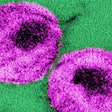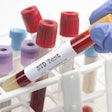The next Clinical Laboratory Improvement Advisory Committee (CLIAC) meeting will address transitioning to remote competency assessments of medical laboratory personnel.
Gregg Brandush, director of the division of clinical laboratory improvement and quality at the Center for Clinical Standards for the U.S. Centers for Medicare and Medicaid Services (CMS), will lead the topic, according to Heather Stang, senior adviser for clinical laboratories in the U.S. Centers for Disease Control and Prevention's Division of Laboratory Systems.
"We want the Committee to discuss the benefits and challenges of utilization of remote competency assessment in the clinical laboratory," Stang said in an email. One proposal for remote assessments involves using a new type of technology, internet-connected headgear that allows hands-free operation during activities at the bench and functions as a tablet.
 A video developed by the American Red Cross demonstrates how an internet-connected headset might be used during the laboratory personnel competency assessment process. Image courtesy of the American Red Cross via YouTube.
A video developed by the American Red Cross demonstrates how an internet-connected headset might be used during the laboratory personnel competency assessment process. Image courtesy of the American Red Cross via YouTube.
Developed by the American Red Cross, the device is called the Real Wear Navigator. A Red Cross video shows how the headset can be worn by lab personnel during an assessment.
One feature that clinical laboratory directors, technical consultants and supervisors, and other compliance managers will find valuable is that the device includes authentication to ensure the right individual is being observed as part of the competency assessment, the Red Cross video stated.
Incomplete assessment of employee competency ranks among the most cited deficiencies during lab inspections, according to inspecting organizations such as the College of American Pathologists, COLA, and others. Making compliance more difficult is that CMS expects competency assessments to be performed for testing personnel for each test that the individual is approved by the laboratory director to perform.
CMS considers six procedures to be minimal regulatory requirements for assessing the competency of personnel performing laboratory testing. They include the following:
- Direct observations of routine patient test performance, including patient preparation, if applicable, specimen handling, processing, and testing
- Monitoring the recording and reporting of test results
- Review of intermediate test results or worksheets, quality control records, proficiency testing results, and preventive maintenance records
- Direct observations of performance of instrument maintenance and function checks
- Assessment of test performance through testing previously analyzed specimens, internal blind testing samples, or external proficiency testing samples
- Assessment of problem-solving skills
Importantly, it has been noted in the CMS guidance that if the test methodology or instrumentation changes, an individual's competency must be reevaluated to include the use of the new test methodology or instrumentation before reporting patient test results.
The CLIAC meeting is scheduled for November 6-7. This meeting will also address the determination of a clinically relevant range of values for proficiency testing samples. Note: CLIAC agenda items are subject to change.



















